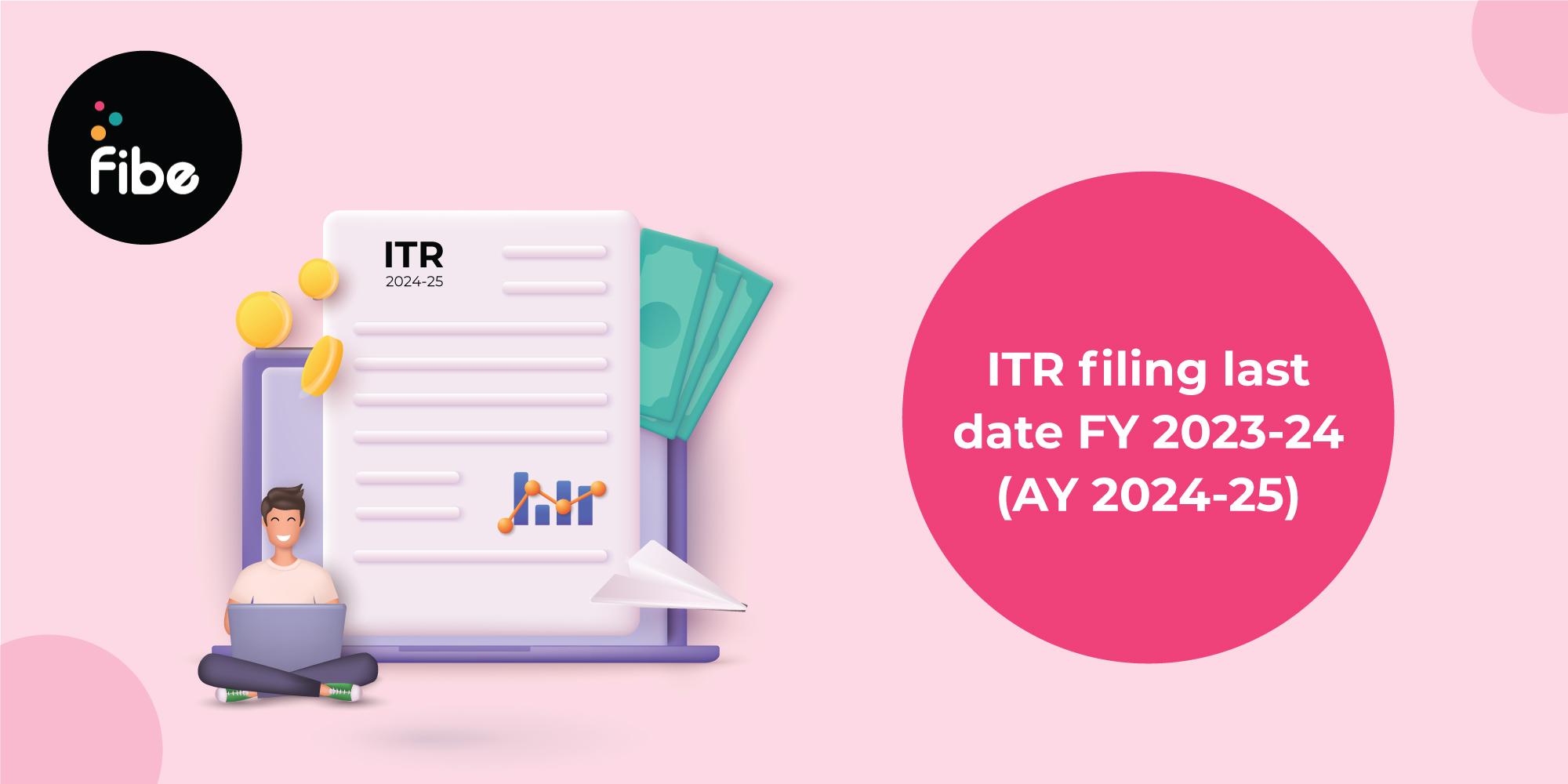
As a taxpayer, it is important to know the deadline for income tax filing to avoid penalties and interest that you need to pay on the fine. These dates can help you create and stick to a timeline and sort out your finances.
Generally, the last date for filing your tax for the financial year is 31st July of the assessment year. However, if you miss the date, you can also file the late returns by the end of December of the same year.
As such, knowing these dates is important to comply with tax laws and file returns on time. Read on to learn about the last date for income tax return filing for the financial year 2023-24, the date for filing advance tax, and other details.
Here is a list of the income tax filing dates for different categories of taxpayers.
| Due Date | Taxpayer Category |
|---|---|
| 31st July 2024 | Individual, Hindu Undivided Family (HUF), Association of Persons (AOP) and Body of Individuals (BOI) |
| 31st October 2024 | Businesses (with tax audit report) |
| 30th November 2024 | Businesses filing for ITR requiring transfer pricing reports (in case of international transactions) |
| 31st December 2024 | Revised returns |
| 31st December 2024 | Belated or late returns |
| 31st March 2027 | Updated returns (up to 24 months after the Assessment Year or AY) |
Note that for businesses, the income tax audit report due date is 30th September 2024.
Also Read: Personal Loan Without ITR
Here is the last date for income tax return of advance tax payments.
| Due Date | Nature of Compliance | Payable Tax Amount |
|---|---|---|
| 15th June 2024 | First instalment | 15% of tax liability |
| 15th September 2024 | Second instalment | 45% of tax liability |
| 15th December 2024 | Third instalment | 75% of tax liability |
| 15th March 2025 | Fourth instalment | 100% of tax liability |
| 15th March 2025 | Presumptive taxation scheme | 100% of tax liability |
Here are some consequences you will face when you miss the deadline for income tax filing.
Also Read: Types of ITR Forms in India
ITR filing on time has many benefits, which are as follows:
To enjoy all these benefits, it’s imperative to file taxes in a timely manner. Doing so also saves you from any last-minute hassle and reduces the chances of making any errors in taxation. If you need a loan for a last-minute requirement, including paying taxes, then you can apply for a Fibe Instant Personal Loan.
You can get up to ₹5 lakhs at pocket-friendly interest rates and a comfortable tenure of up to 36 months. There are also no foreclosure charges, allowing you to repay the loan comfortably. So, download our Personal Loan App or go to our website to apply with a completely digital application process and minimum documentation.
Yes, as per the Union Budget 2022 update, you can file for ITR-U if you miss the last date for income tax returns. This allows you to file a return up to 24 months after the deadline of the relevant assessment year.
The deadline for income tax filing for financial year 2023-24 or assessment year 2024-25 is July 31, 2024. If you miss the date, you have the option to file a belated return by December 31, 2024.